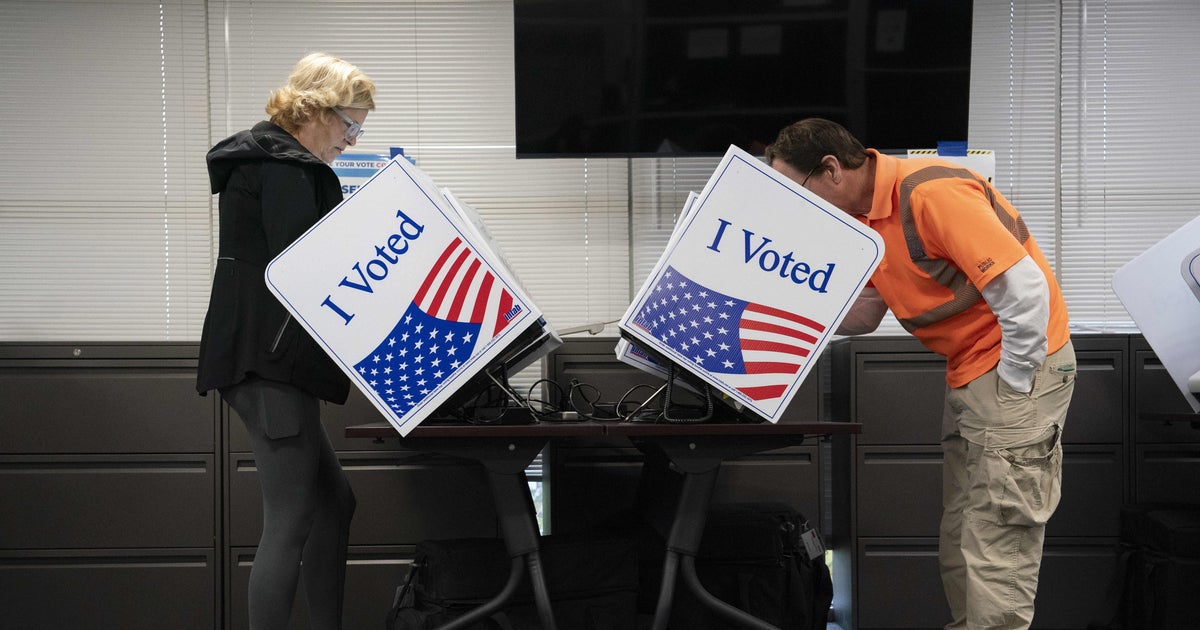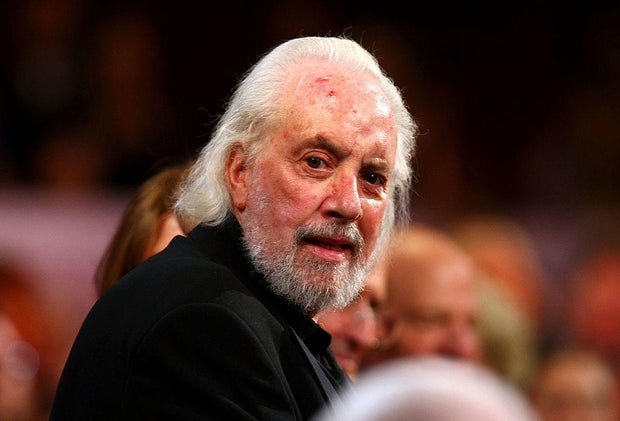CBS News
Who can vote in the South Carolina Republican primary election for 2024?

South Carolina allows registered voters — Republicans, Democrats and independents — to participate in any primary of their choosing. But they can only vote in one, not both. Former President Donald Trump railed against South Carolina’s 2024 open GOP primary earlier this month as he sought to convince Republicans that he needed them to show up and vote for him in Saturday’s election.
“Nikki Haley is pushing Democrats to vote,” Trump alleged during a campaign stop in North Charleston, South Carolina. “Which they shouldn’t be able to do.”
As Trump maintains his grip on the Republican base, Haley, the former ambassador to the United Nations and governor of South Carolina, has looked to independent voters to boost her campaign, making an open primary potentially more beneficial to her than one that allows only registered party members to vote.
Haley reminded supporters in Sumter, South Carolina, on Monday that it’s an open primary.
“Anybody can vote in this primary on Saturday as long as you didn’t vote in the Democrat primary,” she said.
Can registered Democrats vote in the South Carolina primary?
There’s no formal party registration in South Carolina. Registered voters may choose which primary to participate in regardless of whether they identify as Democrats, Republicans or independents.
Voters who are registered as Democrats may vote in the Republican primary if they did not already cast a ballot in the Democratic primary on Feb. 3.
Can registered independents vote in the South Carolina primary?
Yes, the primaries are open to all registered South Carolina voters, regardless of party.
Independent voters who did not participate in the Democratic primary earlier this month are eligible to vote in Saturday’s Republican primary.
Do you have to be registered to vote to participate in an open primary?
Yes. South Carolina law requires voters to register at least 30 days before an election. Those who want to participate in Saturday’s Republican primary had to register by Jan. 25.
heck your voter registration here.
What states have open primaries and why?
States that do not require voters to choose a political party on their voter registration form have open primaries, allowing voters of any affiliation to participate in a primary of any party.
Presidential primaries in South Carolina and 17 other states have partisan primaries with nonpartisan registration, according to Open Primaries, a nonprofit organization that advocates for open and nonpartisan primary elections.
The states with partisan primaries and nonpartisan registration are Alabama, Arkansas, Georgia, Illinois, Indiana, Michigan, Minnesota, Mississippi, Missouri, Montana, North Carolina, Ohio, South Carolina, Tennessee, Texas, Vermont, Virginia and Wisconsin.
Another eight states have open partisan primaries with partisan registration that allow only independent or unaffiliated voters to choose which ballot they want. Those states are Colorado, Iowa, Kansas, Massachusetts, New Hampshire, Rhode Island, West Virginia and Wyoming.
“Most states that have passed open primaries have done so either through the legislature or at the ballot box,” Jeremy Gruber, the senior vice president of Open Primaries, told CBS News. “Generally, the motivations for opening the primaries are pretty straightforward. They’re a question of fundamental values of fairness and inclusion.
Gruber said states with open primaries have higher voter participation because they do not exclude independent voters. Nearly half of U.S. adults identify as independent, according to Gallup.
“When you exclude the largest group of voters in the country that causes all kinds of problems,” Gruber said.
Taurean Small and Nidia Cavazos contributed reporting.
CBS News
7/2: CBS Evening News – CBS News

Watch CBS News
Be the first to know
Get browser notifications for breaking news, live events, and exclusive reporting.
CBS News
Robert Towne, legendary Hollywood screenwriter of “Chinatown,” dies at 89

Robert Towne, the Oscar-winning screenplay writer of “Shampoo,” “The Last Detail” and other acclaimed films whose work on “Chinatown” became a model of the art form and helped define the jaded allure of his native Los Angeles, has died. He was 89.
Towne “passed away peacefully surrounded by his loving family” Monday at his home in Los Angeles, his publicist Carri McClure, told CBS News in a statement. She did not provide a cause of death.
In an industry which gave birth to rueful jokes about the writer’s status, Towne for a time held prestige comparable to the actors and directors he worked with. Through his friendships with two of the biggest stars of the 1960s and ’70s, Warren Beatty and Jack Nicholson, he wrote or co-wrote some of the signature films of an era when artists held an unusual level of creative control. The rare “auteur” among screen writers, Towne managed to bring a highly personal and influential vision of Los Angeles onto the screen.
Alberto E. Rodriguez/Getty Images for AFI
“It’s a city that’s so illusory,” Towne told The Associated Press in a 2006 interview. “It’s the westernmost west of America. It’s a sort of place of last resort. It’s a place where, in a word, people go to make their dreams come true. And they’re forever disappointed.”
Recognizable around Hollywood for his high forehead and full beard, Towne won an Academy Award for “Chinatown” and was nominated three other times, for “The Last Detail,” “Shampoo” and “Greystoke.” In 1997, he received a lifetime achievement award from the Writers Guild of America.
“His life, like the characters he created, was incisive, iconoclastic and entirely (original),” said “Shampoo” actor Lee Grant on X.
Towne was born Robert Bertram Schwartz in Los Angeles and moved to San Pedro after his father’s business, a dress shop, closed down because of the Great Depression. His father changed the family name to Towne.
Towne’s success came after a long stretch of working in television, including “The Man from U.N.C.L.E” and “The Lloyd Bridges Show,” and on low-budget movies for “B” producer Roger Corman. In a classic show business story, he owed his breakthrough in part to his psychiatrist, through whom he met Beatty, a fellow patient. As Beatty worked on “Bonnie and Clyde,” he brought in Towne for revisions of the Robert Benton-David Newman script and had him on the set while the movie was filmed in Texas.
Towne’s contributions were uncredited for “Bonnie and Clyde,” the landmark crime film released in 1967, and for years he was a favorite ghost writer. He helped out on “The Godfather,” “The Parallax View” and “Heaven Can Wait” among others and referred to himself as a “relief pitcher who could come in for an inning, not pitch the whole game.” But Towne was credited by name for Nicholson’s macho “The Last Detail” and Beatty’s sex comedy “Shampoo” and was immortalized by “Chinatown,” the 1974 thriller set during the Great Depression.
“Chinatown” was directed by Roman Polanski and starred Nicholson as J.J. “Jake” Gittes, a private detective asked to follow the husband of Evelyn Mulwray (played by Faye Dunaway). The husband is chief engineer of the Los Angeles Department of Water and Power and Gittes finds himself caught in a chaotic spiral of corruption and violence, embodied by Evelyn’s ruthless father, Noah Cross (John Huston).
Influenced by the fiction of Raymond Chandler, Towne resurrected the menace and mood of a classic Los Angeles film noir, but cast Gittes’ labyrinthine odyssey across a grander and more insidious portrait of Southern California. Clues accumulate into a timeless detective tale, and lead helplessly to tragedy, summed up by one of the most repeated lines in movie history, words of grim fatalism a devastated Gittes receives from his partner Lawrence Walsh (Joe Mantell): “Forget it, Jake, it’s Chinatown.”
The back story of “Chinatown” has itself become a kind of detective story, explored in producer Robert Evans’ memoir, “The Kid Stays in the Picture”; in Peter Biskind’s “East Riders, Raging Bulls,” a history of 1960s-1970s Hollywood, and in Sam Wasson’s “The Big Goodbye,” dedicated entirely to “Chinatown.” In “The Big Goodbye,” published in 2020, Wasson alleged that Towne was helped extensively by a ghost writer — former college roommate Edward Taylor. According to “The Big Goodbye,” for which Towne declined to be interviewed, Taylor did not ask for credit on the film because his “friendship with Robert” mattered more.
The studios assumed more power after the mid-1970s and Towne’s standing declined. His own efforts at directing, including “Personal Best” and “Tequila Sunrise,” had mixed results. “The Two Jakes,” the long-awaited sequel to “Chinatown,” was a commercial and critical disappointment when released in 1990 and led to a temporary estrangement between Towne and Nicholson.
Around the same time, he agreed to work on a movie far removed from the art-house aspirations of the ’70s, the Don Simpson-Jerry Bruckheimer production “Days of Thunder,” starring Tom Cruise as a race car driver and Robert Duvall as his crew chief. The 1990 movie was famously over budget and mostly panned, although its admirers include Quentin Tarantino and countless racing fans. And Towne’s script popularized an expression used by Duvall after Cruise complains another car slammed him: “He didn’t slam into you, he didn’t bump you, he didn’t nudge you. He rubbed you.
“And rubbin,′ son, is racin.'”
Towne later worked with Cruise on “The Firm” and the first two “Mission: Impossible” movies. His most recent film was “Ask the Dust,” a Los Angeles story he wrote and directed that came out in 2006. Towne was married twice, the second time to Luisa Gaule, and had two children. His brother, Roger Towne, also wrote screenplays, his credits include “The Natural.”
CBS News
Analyzing impact of Supreme Court’s Trump immunity decision

Watch CBS News
Be the first to know
Get browser notifications for breaking news, live events, and exclusive reporting.







